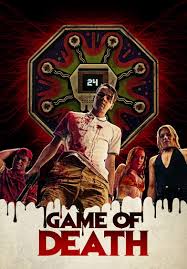Death Games typically involve a group of characters placed in a high-stakes environment where they must compete against one another or face lethal challenges. The stakes are often existential, with survival being the primary objective. The genre can encompass various mediums, including video games, movies, and novels, each offering a unique exploration of the concept.
Key Characteristics
- High Stakes: The most defining feature of death games is the life-or-death stakes. Characters often face dire consequences, which heightens tension and engagement.
- Moral Dilemmas: Participants frequently confront moral questions. They may have to choose between self-preservation and helping others, leading to complex character development.
- Competition: Many death games involve a competitive element, where characters must outsmart, outmaneuver, or overpower each other to survive.
- Psychological Tension: The mental strain of surviving in a death game scenario often drives the narrative, highlighting fear, betrayal, and desperation.
Notable Examples
1. Video Games
- Danganronpa Series: This visual novel series revolves around a group of high school students trapped in a school by a bear named Monokuma. They must participate in deadly trials and confront their peers to escape. The game blends elements of mystery and psychological horror with moral quandaries.
- Battle Royale Games: Titles like PlayerUnknown’s Battlegrounds (PUBG) and Fortnite encapsulate the essence of death games, where players compete in an ever-shrinking arena, fighting to be the last one standing. The combination of strategy and survival makes these games incredibly engaging.
2. Movies
- Battle Royale: This 2000 Japanese film depicts a group of high school students forced to kill each other on an isolated island as part of a government experiment. The film critiques societal pressures and explores themes of friendship and betrayal.
- The Hunger Games: Based on the novels by Suzanne Collins, this series features a dystopian society where young tributes are chosen to fight to the death in a televised event. It examines themes of oppression, rebellion, and the human spirit’s resilience.
3. Literature
- The Long Walk by Stephen King (under the pseudonym Richard Bachman): In this novel, contestants participate in a brutal endurance contest where the last walker standing wins, but failure to keep pace results in death. The story explores the psychological toll of survival and societal expectations.
The Appeal of Death Games
The death game genre captivates audiences for several reasons:
- Thrill and Suspense: The tension and unpredictability of life-and-death situations create an adrenaline-fueled experience, keeping audiences on the edge of their seats.
- Exploration of Human Nature: Death games offer a lens through which to examine human behavior under extreme pressure. They provoke thought about morality, ethics, and the choices individuals make in desperate circumstances.
- Character Development: The challenges faced by characters often lead to significant growth or decline, making for compelling storytelling. Audiences become invested in their journeys, rooting for survival or transformation.
Conclusion
Death games, whether in video games, films, or literature, provide thrilling narratives that explore the darkest corners of human nature and morality. Through high-stakes scenarios and intense psychological challenges, they engage audiences in thought-provoking ways. As the genre continues to evolve, it remains a powerful medium for storytelling, reflecting societal issues and the complexities of the human experience. Whether enjoyed for their suspenseful action or their deeper moral implications, death games resonate with fans, inviting them to confront the ultimate question: what would you do to survive?




